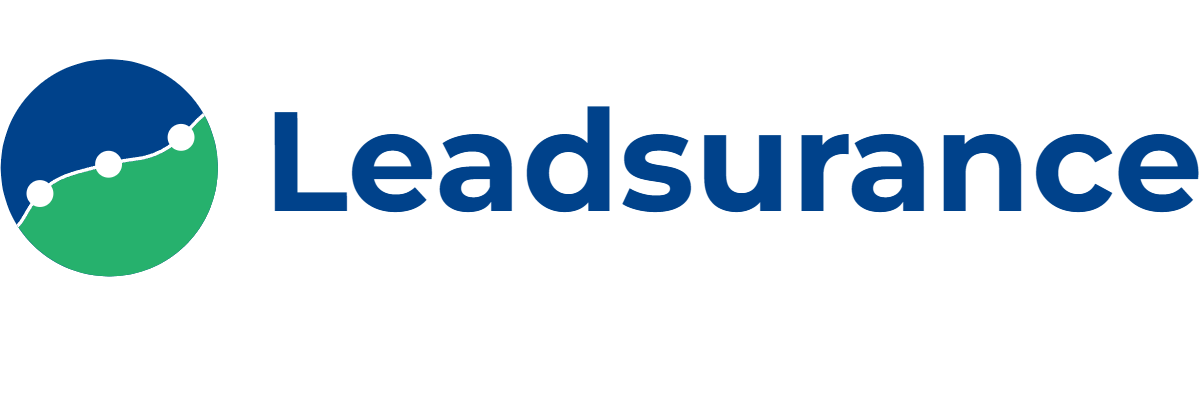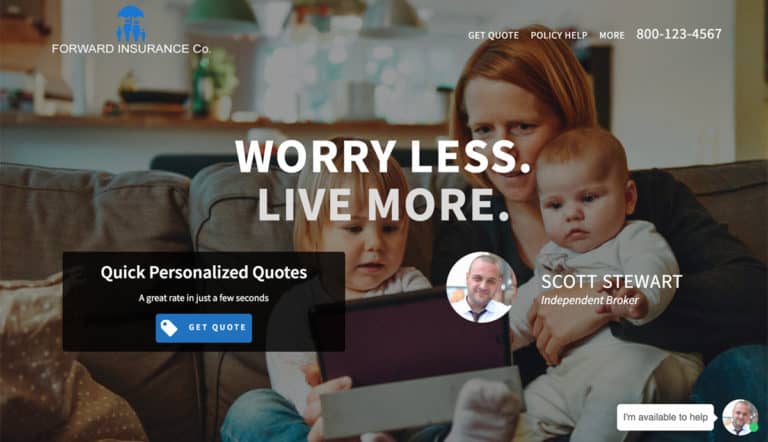It has been stated by some insurance professionals that 93% of new insurance agents fail within 1-3 years of launching their insurance career.
Although this is not an official statistic, anyone in the insurance industry will agree that industry turnover is very high and the industry is extremely competitive for new agents to enter.
So, why do so many insurance agents fail as soon as they launch?
We know the main reasons why a freshly-trained agent won’t cut it in today’s market, and it is oftentimes related to insurance agent training programs or a lack thereof.
Of course, new agents often underestimate the amount of effort that goes into being successful in the industry and have the wrong expectations from day 1.
Other times, they join the profession for the wrong reasons. This category of people become agents to make money, forgetting that it is about building relationships first.
All these reasons for new agents failing can be resolved with comprehensive insurance training.
Most often, new insurance agents do not succeed because they aren’t equipped with the appropriate expectations, skills, and knowledge provided through sufficient training for insurance agents.
So, whether you are a new insurance agent looking for training opportunities or you are a seasoned insurance broker looking to grow your agency, read this post to improve your insurance agent training processes.

Why Insurance Agent Training is Important
Training an insurance agent equips them with the three necessary skills to get some working knowledge of the industry.
These skills are:
- Technical skills
- Knowledge of insurance products and services
- Legal and regulatory awareness
Trained agents tend to be high-performers, also known as top producers, and, in turn, contribute to creating a profitable insurance firm.
Companies that take insurance agent training seriously are like a beacon that attracts motivated candidates. If your company is known for providing sound, comprehensive, and continuous training for its agents, it will attract like-minded people.
Agencies are constantly scouting for agents that know their worth and what they want in the workplace. Providing the resources will help them succeed and in the process benefit the company.
The how and when that the organization provides training opportunities is what matters. After all, insurance companies provide mandatory training to their agents. What separates the quality of agent training is the process that goes on after they complete the mandated basic process of getting licensed.
Becoming an insurance agent by getting licensed won’t take that long but successfully building a book of business will.
To become successful, both agents and companies have to put in concerted efforts for some time. The time frame is usually years rather than months.
There is no magical formula to create the much-needed influx of customers except lengthy and consistent efforts sustained over some time. The same argument can be made for the training process. It should be considered and made a consistent process that continuously takes place over some time.
Why Agent Education Programs Fail
The modern successful insurance business is built on continuous investment in its workforce. This means continued training for both the internal and external employees. This sustained education is an efficient workforce, higher profits, and lower turnover among others.
If a similar training that is provided to internal employees was also provided to external employees, the benefit of a blended approach would be exponential.
Companies need to provide additional opportunities for learning on the job via on-demand lessons.
Independent agents also have extra learning needs outside the basic short courses provided by the government. External occupy a unique position in an insurance firm. They are solo traders, yet their immense contributions make them a part of a larger tribe.
Therefore, the training accorded to the external agent should allow them to participate in structured learning. At the same time, this training should respect the nature of independent agents’ careers.
The training for an independent agent that accommodates their need for semi-independence and self-governance is an online one. It should be both physically and psychologically distanced from the captive agents/internal employees. However, there should also be occasional opportunities for collaborative learning.
The Elements of a Successful Training Program
Holding an extended, dynamic training strategy for insurance agents is the only way to ensure that service quality stays consistent. Continuous training further ensures that there are fewer legal risks. Furthermore, it will ensure that there is sustained long-term profits for the company.
The training necessary for these benefits to manifest is much more complex than the initial one received for licensing exams. It also goes deeper than the training at seminars and conferences.
How then, may companies formulate the right training programs? There are three elements similar to successful training programs.
- Continuous and structured training that gradually builds skills and capacity
- The learning is on-demand
- The training being offered must reflect the goals of the agent and organization
Continuous and Structured Training that Develops Skills
As we have seen, the first training of a successful agent is standardized across the board. Everyone who takes part in that training leaves with the same skills. To get an edge in the competition, those skills must be developed over time. This applies to both the company’s captive and independent agents.
To achieve this kind of training synchronization, the company needs to plan with the big picture in mind.
The big picture needs to be how to facilitate a logical progression of skills. Since the insurance industry is a people-centric business, agents first need to learn communication skills, then sales alongside administrative skills.
Instead of overwhelming the trainees by lumping all the training sessions in one long week, companies can adopt drip learning. This means that the company provides bits of relevant lessons over time, especially on the job, as needed.
Bite-sized learning promotes knowledge retention. It also allows the necessary skills’ progression to take place for new agents. They will first learn how to communicate and then develop their service skills. All other skills necessary in the insurance industry are built upon service and communication.
Provision for On-the-Job On-Demand Learning
Your newest employees will still have a lot of questions despite their initial training. Provide resources to answer these questions for them on-demand.
Being able to access instant answers when they need is crucial during the first few months that the agents try to find their footing. These resources reduce job frustrations, enhance retention, and sustains workplace engagement with clients.
Workplace training is supported by the concept of asynchronous learning. This means that training is readily available at the company anytime and anywhere.
The agents are, therefore able to strike a balance between work and life. This is because they are not worrying about how to get by at work the next day. Independent agents are also freed to focus on other aspects of running an agency business.
Training Aligned with the Agent and Company Goals
At this stage, you will have an agent who is now conversant with relationship skills, sales techniques, and knowledge of industry regulations. This agent is a powerful asset for the company.
A company that retains such an agent is in line to reap some tremendous benefits. Loyalty among the workforce can be fostered by engaging agents regularly and offering ongoing training support.
The goal of engaging the agent is to make an effort to provide training that aligns with the agent’s talents and career aspirations.
Even though insurance companies have a narrow vision and a generalized way of getting there, they can also tailor their agents’ opportunities. These opportunities offer them a means of also achieving their career goals while working towards the company’s bottom line.
E-learning for Insurance Agents
Technology provides opportunities and avenues to amplify every area of our lives and business. Training and education from the earliest to the highest levels followed suit. Because of that, there is now online training for insurance agents.
E-learning platforms make training courses accessible to insurance agents regardless of their location.
Combined with learning apps, the information is available to agents on the go. Agents can confidently address specific queries when they have access to instant answers to back up what they know.
E-learning courses have incorporated the elements of a natural class setting to eliminate boredom and loneliness. The lessons have been made interactive to increase engagement knowledge and retention.
When utilized well, e-learning has the potential to churn out a cadre of diverse and qualified agents. Licensed agents can use it too for their continuing education on various topics.
The more agents a company can sponsor via e-learning, the better their chances of selling more products and earning high profits.
Creating a content marketing and educational program to train your insurance agents is a great idea for creating a scalable and effective training program on a budget.
How Training Increases Insurance Sales
A successfully trained agent is at the level where they can eloquently explain the insurance products’ nuances and features. This is crucial since the nature of insurance products is complex and dynamic.
Also, there are numerous government regulations and compliance requirements which need to be understood and explained clearly.

Insurance agents must learn how to use complex software, calculators, demos, tools, etc. They need to be proficient in calculating the financial and other mathematical aspects of insurance.
Furthermore, they need to be able to manage leads efficiently and effectively as they will be working with a high volume of prospects and policyholders.
The state of the insurance industry is such that there are countless alternatives available to the customers. This is especially true for those insurance products such as life insurance. The benefits of such a policy are intangible or projected to be felt in the future.
In such a scenario, it is hard to compare the products against each other based on merit. Therefore, the customer’s decision to purchase such a policy boils down to the quality of their interaction with the agent.
Training your insurance agents will provide them with the skills to handle all the changes we have discussed. Overcoming these challenges inevitably mean an increase in your sales.
Here is how your sales will improve:
- Training your agents develops their interpersonal skills. The result is a more productive interaction between the agent and a prospective client.
- An agent who has learned the techniques of effective communication can anticipate the needs of a potential customer. The agent can assess the client’s needs, interests, and motivations to customize their pitch to be relevant.
Research has shown that while statistics might win over some people, others are convinced by stories. This research found out that only 5% remembered the stats while 63% of them remembered the stories.
The same research discovered that 70% of purchasing decisions are made when they solve a problem. Only 30% of the decisions to purchase are made to gain something.
These statics show that it is important to have a trained person who can discern where each potential client falls. Once they figure that out, they can effectively market their strategy to the prospective.
- To boost your insurance sales, you have to win the customers’ confidence. Customers will feel confident when they interact with agents who have been trained to have a proper grasp of their job.
A study conducted by Statista showed that “ease of understanding” led millennials to choose an agent in the United States. This finding speaks for itself.
- The insurance industry is dynamic with many complex changes happening every day. Sometimes these complexities have to be explained to a customer in the layman’s language. A person without the communication skills to convey it simply will confuse a customer. A confused customer cannot be converted into a client.
- Excellent communication skills inspire confidence in the products being sold as well as in the agent. You are assured of a sale when the customer can trust you. Training can help you achieve this level of salesmanship.
- There are financial tools and applications used to calculate interest rates, amount of returns, and so on. These need to be explained to clients in a way that they feel conversant with their policy. Impact training gives an agent enough practice with these tools.
- Training can also double as a review process. There are always sales techniques and tools being introduced into the industry. At times agents do not adapt well to some of them. Training helps you evaluate which tools and techniques are adopted well and which ones aren’t. What works with one agent may not work with another and identifying the best tools for everyone will ensure efficiency.
Conclusion
If you want to run a successful insurance business, you must invest in training your agents. These are the first people that customers interact with, so they determine whether you’ll sell your products or not. By investing in them, you are creating a knowledge resource base that can help your company succeed in the long run.
Don’t get overwhelmed by the desire to train your agent about every small detail of the industry. Rather, choose to focus on one factor at a time and build their knowledge slowly. You will see higher retention of both agents and clients this way.






